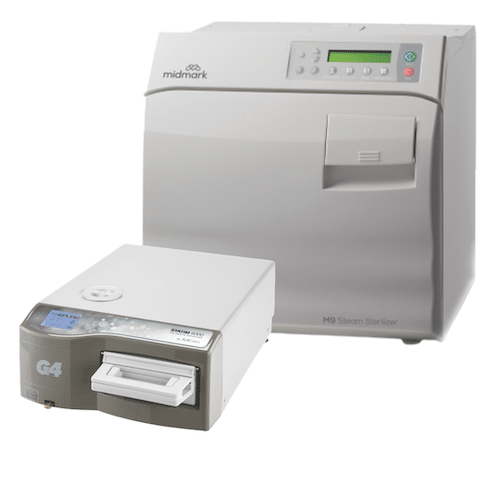Autoclaves are critical devices used for sterilization in various industries, particularly in healthcare, laboratories, and dental practices. When these machines experience issues, it can jeopardize safety and efficiency. This article explores the importance of autoclave repair services, common problems, maintenance tips, and how to choose a reliable service provider.
What is an Autoclave?
An autoclave is a specialized high-pressure steam sterilizer designed to kill bacteria, viruses, and spores through the application of heat and pressure. Typically operating at temperatures between 121°C and 134°C, autoclaves play a vital role in ensuring that instruments and materials are free from harmful microorganisms.
Types of Autoclaves
- Gravity Displacement Autoclaves: These rely on gravity to displace air from the chamber, allowing steam to penetrate effectively.
- Vacuum Autoclaves: These create a vacuum to remove air before introducing steam, leading to more thorough sterilization.
- Flash Autoclaves: Ideal for quick sterilization needs, flash autoclaves provide rapid results in urgent situations, such as during surgical procedures.
Importance of Autoclave Repair Service
Ensuring Safety and Compliance
Regular maintenance and timely repairs are essential to ensure that autoclaves operate safely and effectively. Malfunctions can lead to inadequate sterilization, posing risks to patient safety and violating health regulations.
Prolonging Equipment Lifespan
Consistent repairs and maintenance can significantly extend the life of your autoclave. By addressing minor issues early, you can prevent larger problems that may require costly repairs or complete replacements.
Maintaining Consistent Performance
A well-maintained autoclave consistently delivers reliable sterilization results. Regular servicing ensures optimal performance, which is critical for any facility relying on sterile instruments.
Common Autoclave Issues
Inconsistent Temperature and Pressure
One of the primary indicators of an autoclave malfunction is inconsistent temperature and pressure readings. This inconsistency can compromise the sterilization process, requiring immediate repair.
Unusual Noises
If you hear strange sounds like banging or grinding during operation, it could indicate mechanical issues that need to be addressed promptly.
Error Codes
Modern autoclaves often come equipped with diagnostic systems that display error codes. Understanding these codes can help you identify problems early and seek timely repairs.
Water or Steam Leaks
Leaks around seals or hoses can hinder performance and pose safety risks. Addressing leaks quickly is crucial to maintaining effective operation.
Best Practices for Autoclave Maintenance
Regular Inspections
Routine inspections are essential for identifying potential problems before they escalate. Key components to check include:
- Gaskets and Seals: Ensure they are intact to maintain pressure.
- Temperature and Pressure Gauges: Verify they provide accurate readings.
- Valves: Check for proper functioning to prevent leaks.
Cleaning Procedures
Keeping your autoclave clean is vital for optimal performance. Recommended cleaning tasks include:
- Daily Cleaning: Wipe down the exterior and clean trays to remove debris.
- Weekly Cleaning: Clear any buildup in the chamber and drainage systems.
- Monthly Maintenance: Conduct thorough cleaning of internal components.
Calibration
Regular calibration is essential to ensure that the autoclave operates within specified parameters. This may involve checking and adjusting the temperature, pressure, and cycle times according to the manufacturer’s specifications.
Choosing the Right Autoclave Repair Service
Look for Certifications
When selecting a repair service, ensure that the provider is certified and compliant with industry standards. Certifications indicate a commitment to quality and expertise.
Evaluate Experience
Choose a repair service with extensive experience in autoclave repair. Technicians who are familiar with various models will be better equipped to diagnose and resolve issues efficiently.
Check Reviews and References
Research customer feedback and testimonials. A reliable service provider should have positive reviews from past clients, demonstrating their ability to deliver quality repairs.
Comprehensive Services
Opt for a provider that offers a full range of services, including inspections, routine maintenance, and emergency repairs. This ensures you have a dependable partner for all your autoclave needs.
Cost of Autoclave Repair Services
The cost of repairs can vary based on several factors:
- Type of Autoclave: Different models may have unique repair needs.
- Nature of the Issue: Simple fixes will generally cost less than major repairs.
- Service Provider: Prices can differ depending on the provider and their location.
It’s essential to obtain quotes from multiple service providers to find the best value.
Conclusion
Autoclave repair services are vital for maintaining the safety and effectiveness of sterilization processes in any facility that relies on autoclaves. By understanding common issues, implementing best practices for maintenance, and choosing the right repair service, you can ensure your autoclave operates efficiently and reliably.
FAQs
1. How often should I have my autoclave serviced?
It is generally recommended to schedule maintenance at least once a year, though more frequent checks may be necessary based on usage.
2. Can I perform maintenance myself?
Basic cleaning can often be done in-house, but it is advisable to hire professionals for complex repairs and calibrations.
3. What are the signs that my autoclave needs repair?
Look for inconsistent temperature or pressure readings, unusual noises, error codes, or leaks.
4. How can I choose the best repair service?
Look for certified providers with good reviews and extensive experience in autoclave repairs.
For more detailed information on reliable Autoclave Repair Service, explore our offerings today.




